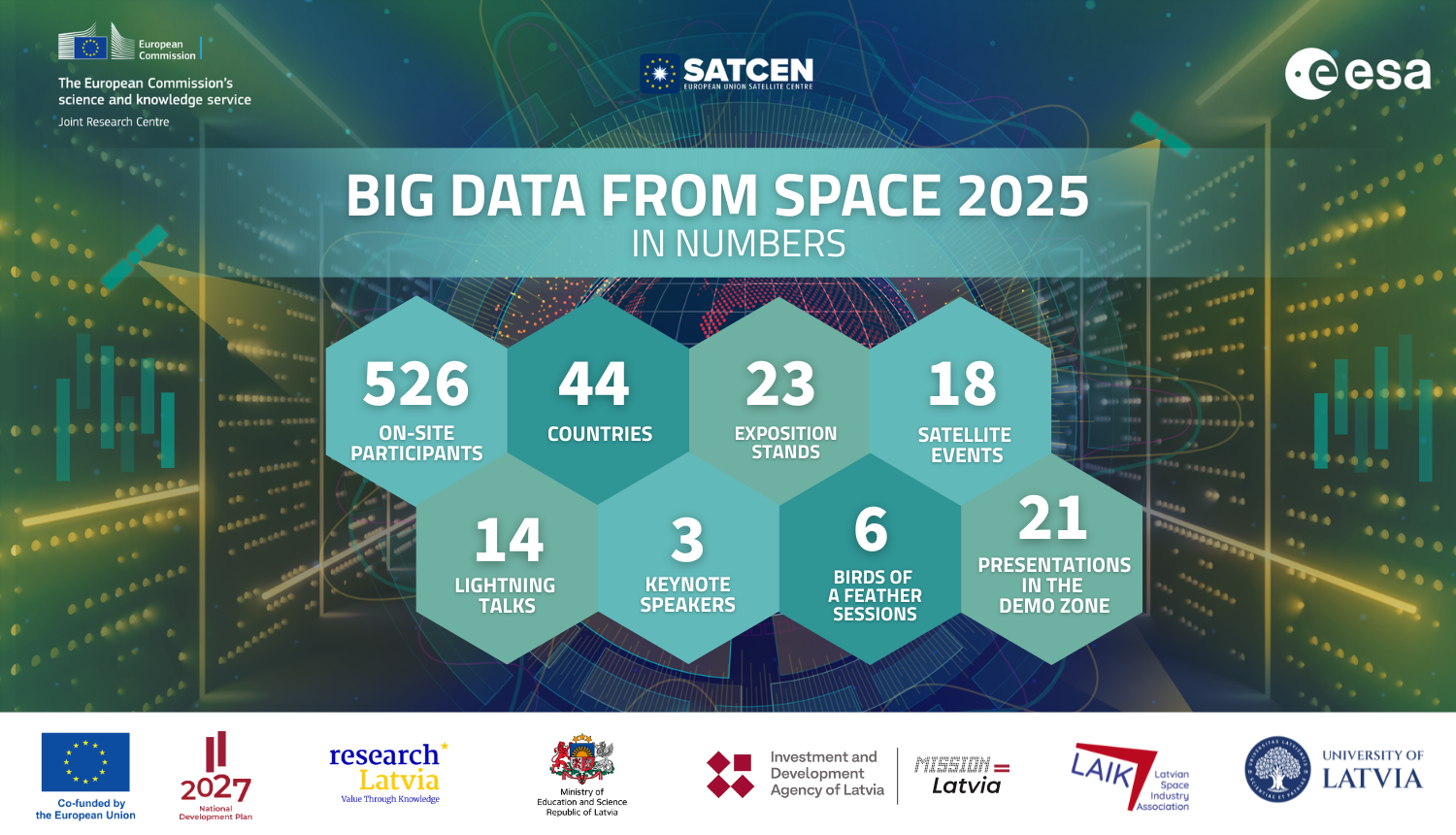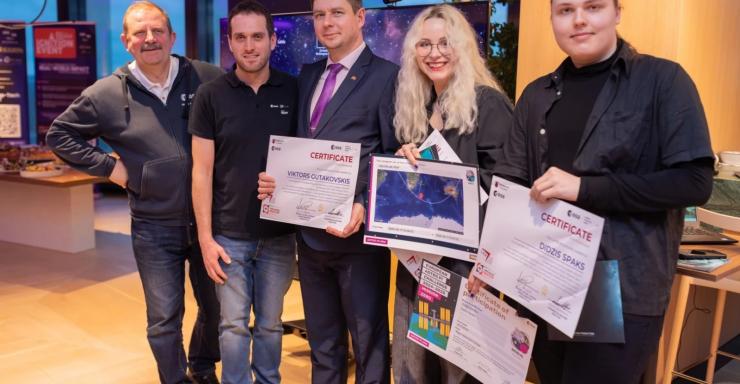Riga hosted the first international conference in the Baltic Sea region, Big Data from Space 2025 (BiDS2025), one of the most important European space data and technology events held every two years. This was the seventh conference, which this year brought together more than 520 participants from 44 countries worldwide, including scientists, technology experts, entrepreneurs, and policymakers from across Europe and beyond. The event demonstrated that Latvia is increasingly strengthening its place in the European space and innovation ecosystem by hosting a large-scale international conference.
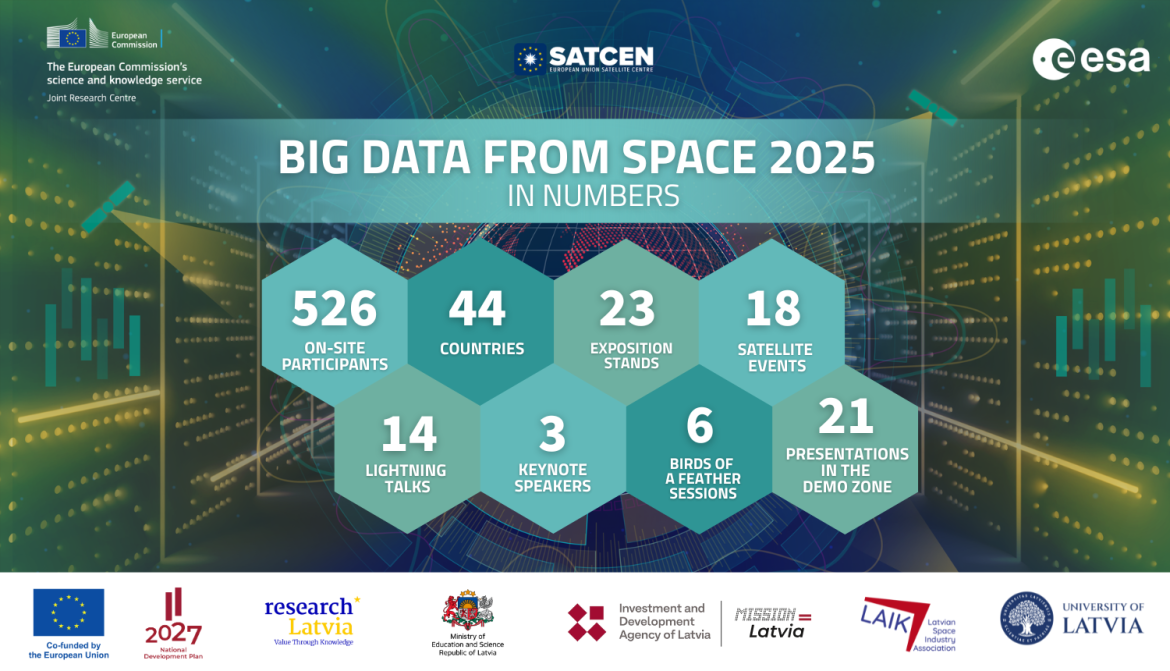
For five days, from September 29 to October 3, the University of Latvia (UL) Academic Centre and the National Library of Latvia were pulsating with the energy of innovation and ideas. BiDS2025 participants had the opportunity to explore 23 exposition stands, participate in 18 satellite events, watch 21 presentations in the demo zone and 14 dynamic lightning talks, as well as listen to speeches by three keynote speakers and participate in six birds of a feather sessions that encouraged the development of new solutions and collaborations for future technologies.
The conference demonstrated that the combination of space technologies and big data provides tangible benefits not only for society but also for the economy and national security. Discussions and presentations emphasised that satellite data and their analysis make a vital contribution to monitoring and forecasting climate change, reducing disaster risks, and strengthening cybersecurity and the protection of critical infrastructure. They also deliver solutions for agriculture, transport, healthcare, and other sectors. Satellite data are becoming an essential tool for policymakers, businesses, and society at large, providing accurate and reliable information for decision-making.
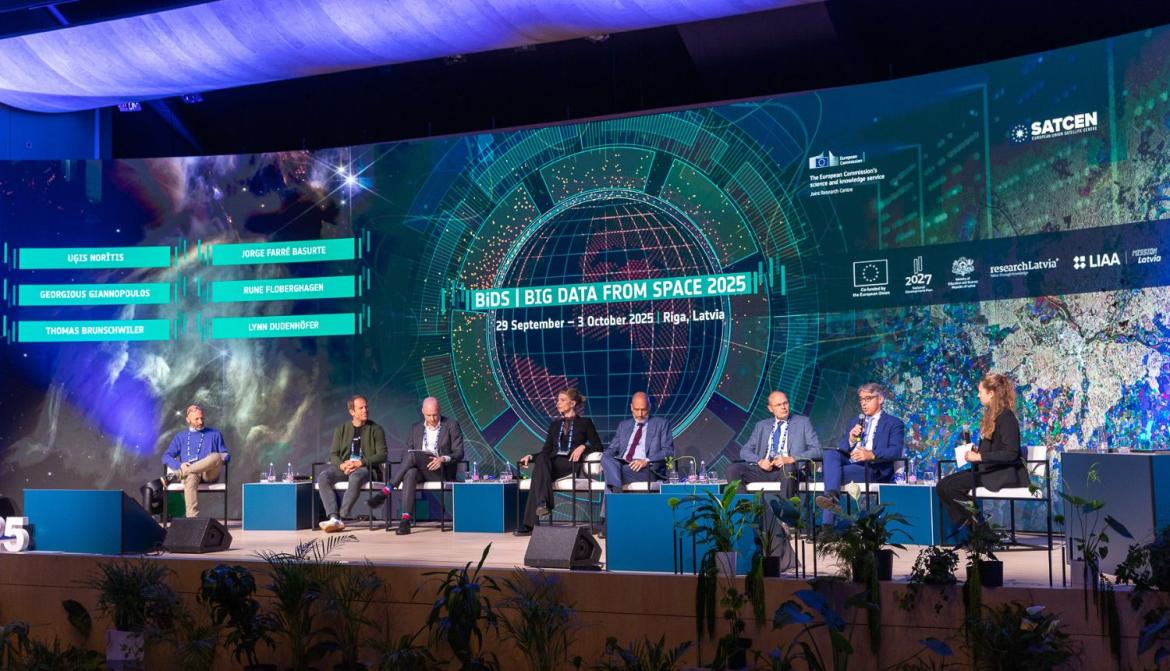
Since 2020, Latvia has been an Associate Member of the European Space Agency (ESA), which has created opportunities to strengthen the ecosystem of science, education, and innovation.
For Latvia as a relatively small country, knowledge and international cooperation are the greatest assets, while investments in space bring concrete benefits to society and the economy – from the creation of new jobs and sustainable growth, to the introduction of advanced technologies in business, and the development of education and skills for future generations. Satellite data also help address both everyday and global challenges.
Governmental and non-governmental representatives actively participated in the discussions, including from the Ministry of Environmental Protection and Regional Development, the Ministry of Defence, and the Ministry of Economics. This underlines that the use of space data and technologies is an interdisciplinary field that requires close collaboration across sectors.
The conference concluded by stressing that the use of big data from space is not an end in itself, but a tool for improving societal well-being – from disaster prediction to innovations in medicine, transport, and energy. The ideas and cooperation initiatives adopted in Riga will continue to advance the European and global space sector, strengthening security, resilience, and innovation capacity.
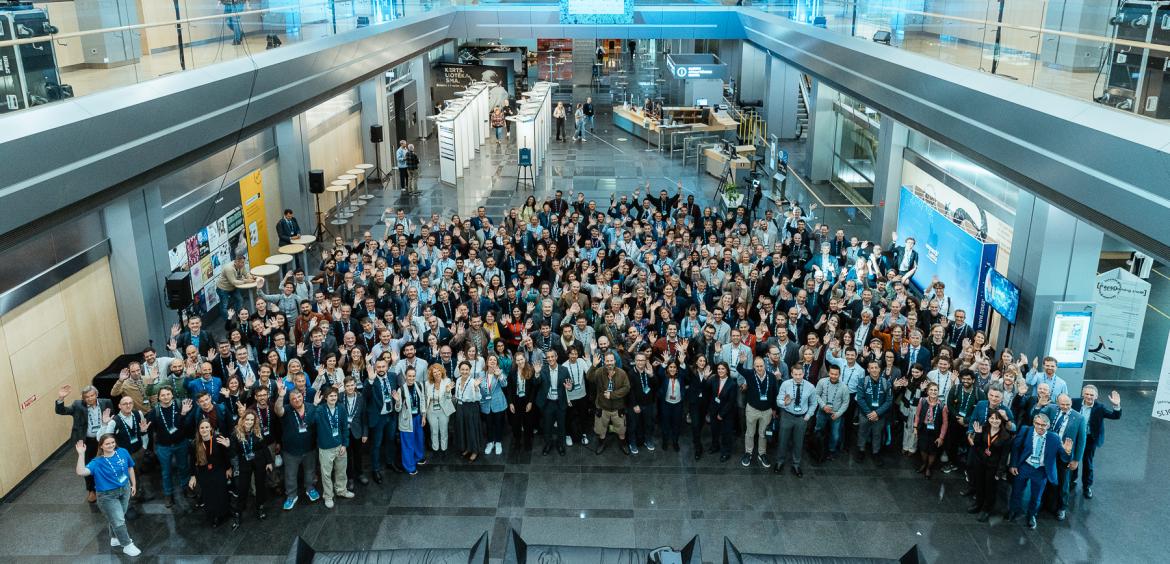
The conference was organised by the ESA, the European Commission’s Joint Research Centre, and the European Union Satellite Centre in cooperation with Latvian partners – the Ministry of Education and Science, the University of Latvia, the Investment and Development Agency of Latvia, and the Latvian Space Industry Association.
More information: www.bigdatafromspace2025.org
The international conference is organised within the framework of the project No. 1.1.1.1/1/24/I/001 “More effective and smarter implementation and management of Latvia’s science policy”, implemented by the Ministry of Education and Science of Latvia.

